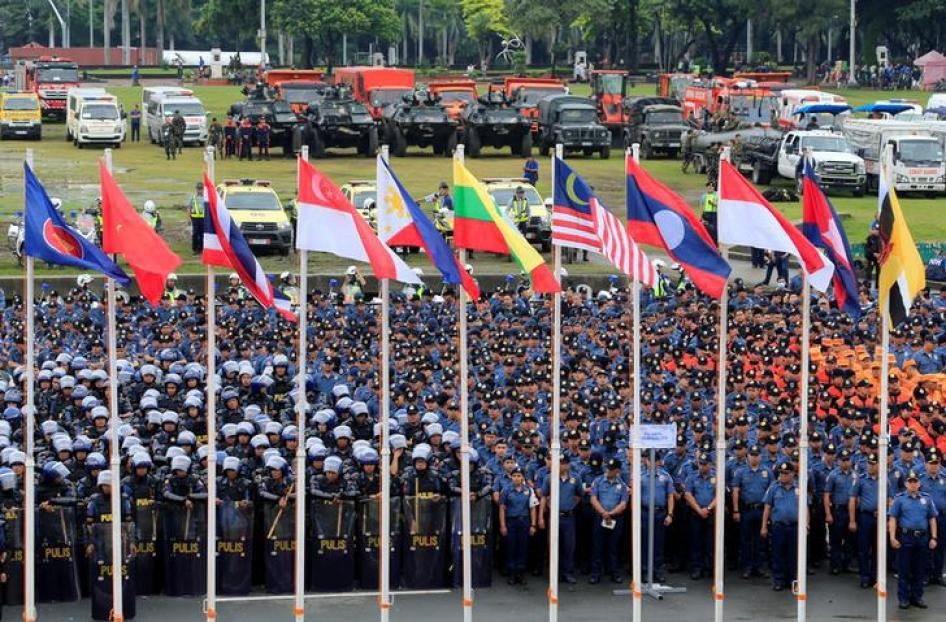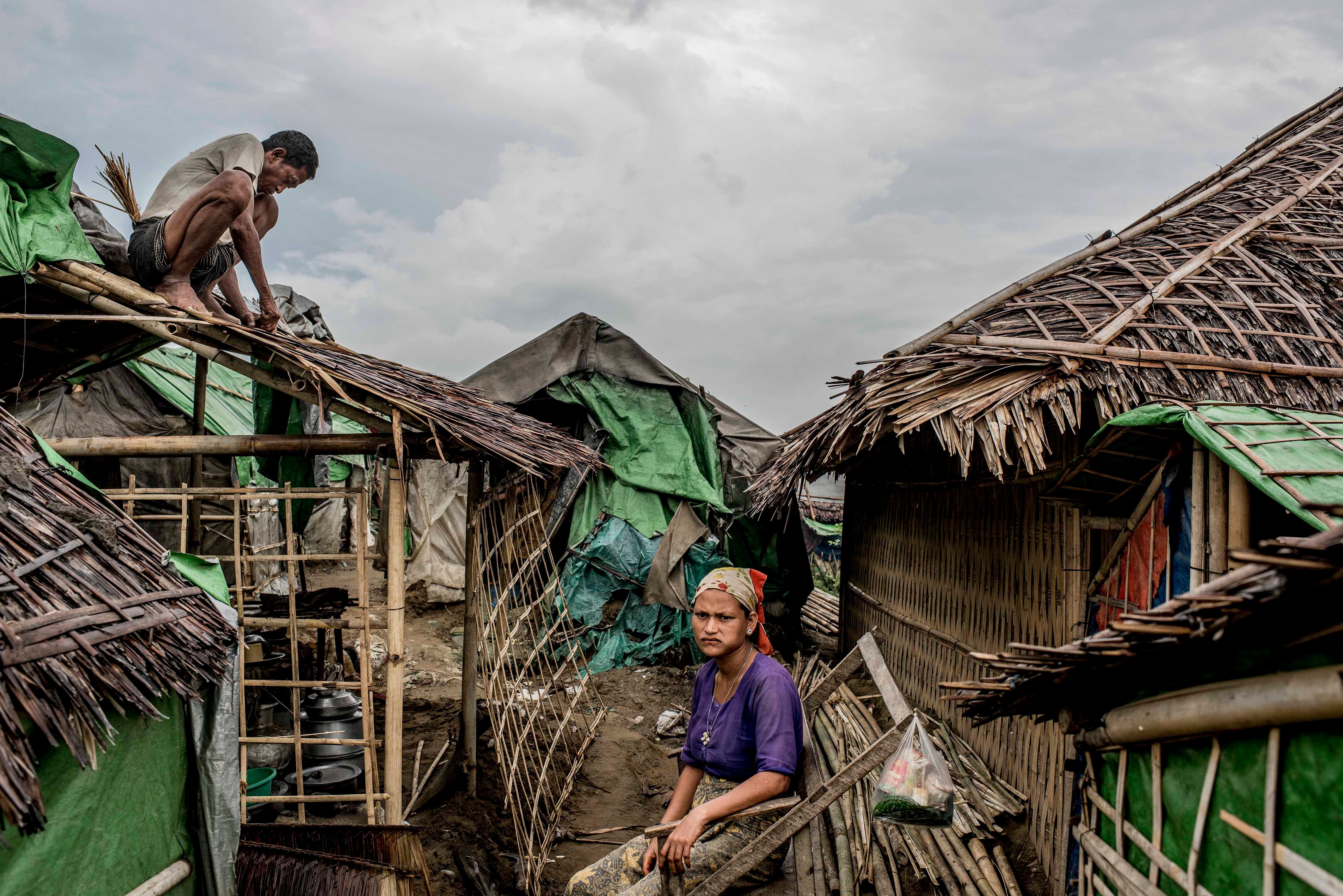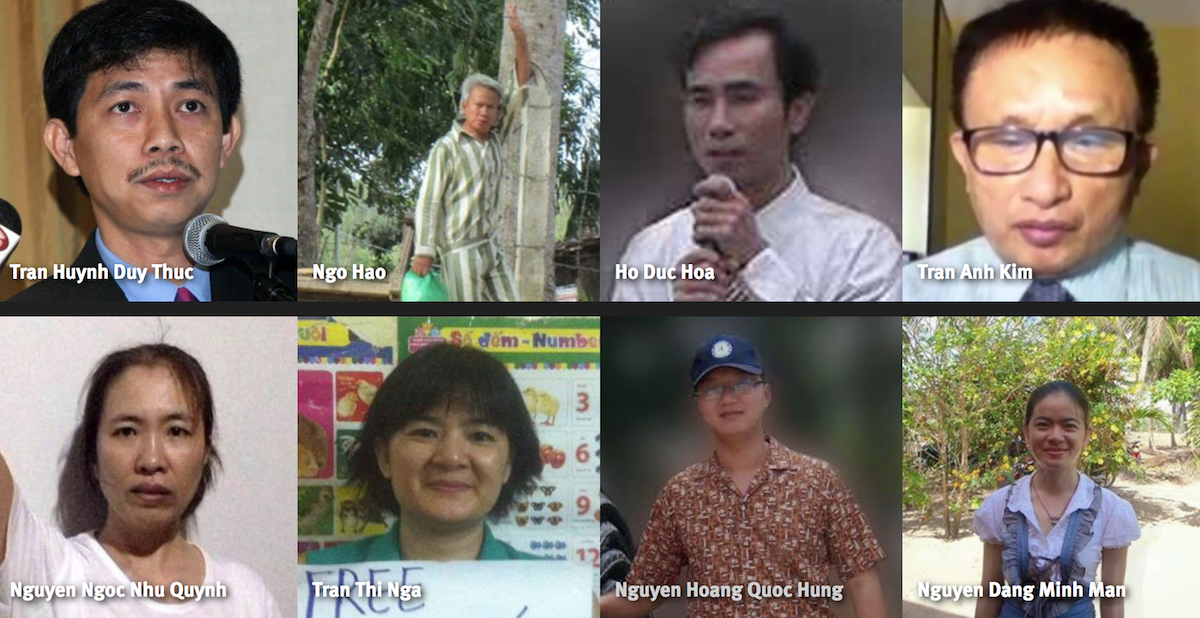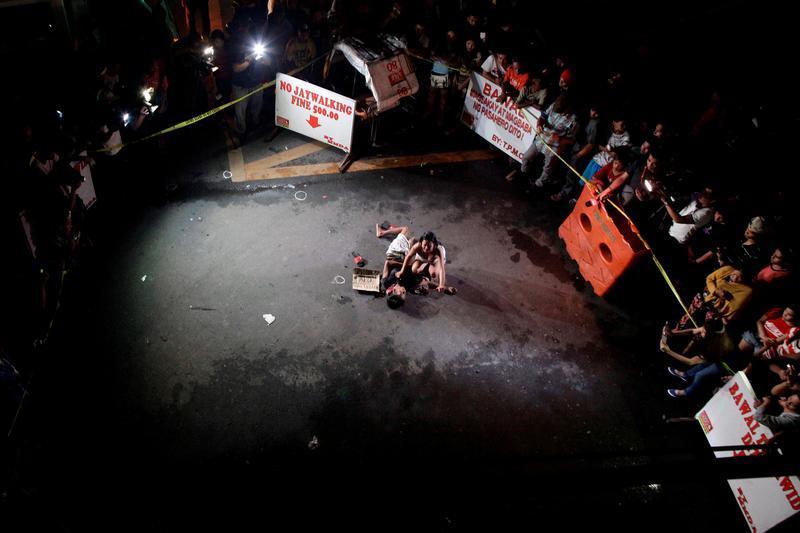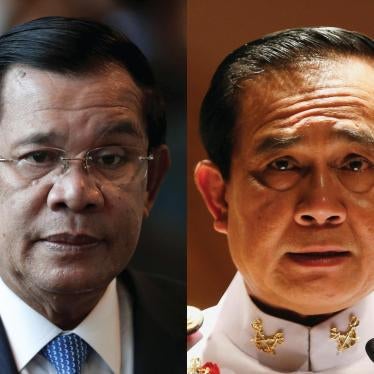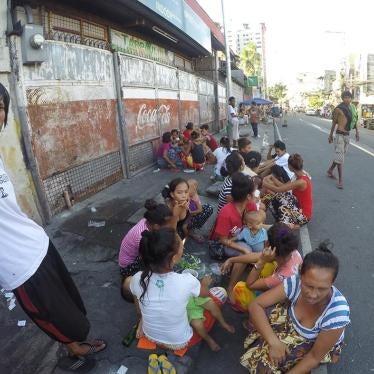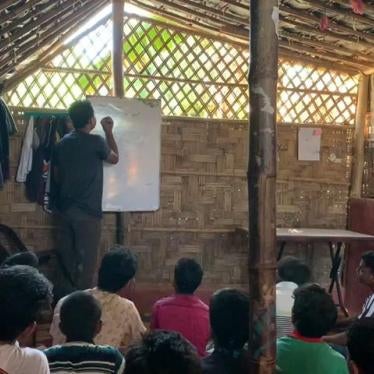(New York) – World leaders meeting for summits in Asia on November 10-14, 2017, should address Burma’s Rohingya crisis and the deteriorating human rights situations in Vietnam, the Philippines, and Cambodia, Human Rights Watch said today.
Heads of government from the Asia-Pacific Economic Cooperation (APEC), including the United States, China, Japan, Russia, Canada, Australia, and Mexico, will be meeting in Da Nang, Vietnam, on November 10. Leaders from the Association of Southeast Asian Nations (ASEAN) will be meeting in Manila, Philippines, on November 12, along with associated ASEAN side-summits with the US, European Union, Japan, and South Korea, among others. Most of these leaders will then attend the annual East Asia Summit in Angeles, north of Manila, on November 13-14.
Since August 25, the Burmese military has carried out a campaign of ethnic cleansing against Rohingya Muslims in northern Rakhine State. Security forces have committed massacres, rape, looting, and mass burnings of homes and property, causing the flight of more than 600,000 Rohingya refugees to Bangladesh. Human Rights Watch has determined that the atrocities amount to crimes against humanity. The campaign has led several countries to suspend military engagement with Burma and reimpose targeted sanctions and travel restrictions on high-level military leaders. Tougher measures are needed to press Burma to end the abuses, acknowledge rampant rights violations, ensure the safety of the internally displaced, and give access to independent fact-finders.
“The Rohingya crisis is among the worst human rights catastrophes in Asia in years and demands concerted global action,” said Brad Adams, Asia director. “World leaders shouldn’t return home from these summits without agreeing to targeted sanctions to pressure Burma to end its abuses and allow in independent observers and aid groups.”
The United Nations Security Council should impose an arms embargo and targeted economic sanctions and travel bans on military officials implicated in atrocities. While the Security Council has not passed a resolution condemning the abuses, on November 6 it issued a Presidential Statement expressing concerns about the violence and calling on Burma to cooperate with UN bodies responsible for investigating the abuses. The Security Council should now take more meaningful action, but in the meantime concerned governments, especially those in Asia, can take coordinated bilateral or multilateral actions to impose targeted sanctions and travel bans.
Leaders at the Asia summits should jointly call on the Burmese government to allow access to northern Rakhine State by the UN fact-finding mission created by the Human Rights Council in 2016, as well as other UN human rights and humanitarian staff. UN Secretary-General António Guterres will be attending parts of the ASEAN and related summits in the Philippines, and UN General Assembly members are currently debating a resolution on Burma to be adopted later this year.
Leaders gathering in Asia should also be discussing the creation of judicial mechanisms to hold perpetrators of abuses in Burma accountable, including via the General Assembly and Human Rights Council. The Security Council should refer the situation in Burma to the International Criminal Court.
“The International Criminal Court was created precisely to deal with crimes against humanity like those being committed in Burma,” Adams said. “Members of the Security Council attending the Asia summits should be discussing referring the situation in Burma to The Hague.”
The plight of displaced Rohingya should also be addressed at the Asia summits. Leaders should be clear that their governments will oppose plans for displaced Rohingya that do not meet core international standards prohibiting forced returns, or returns that would result in further abuses. A discussion of the key issues can be found in Human Rights Watch’s “Ten Principles for Protecting Refugees and Internally Displaced People Arising from Burma’s Rohingya Crisis.”
Vietnam
During the APEC summit in Vietnam on November 10, visiting leaders should raise concerns about Vietnam’s escalating crackdown on dissidents and human rights defenders. Human Rights Watch recently compiled a list of 105 political prisoners in Vietnam, highlighting 15 cases in a campaign for their release. Dozens of other dissidents remain in arbitrary detention, awaiting trial.
“Vietnam’s abusive one-party state is hosting a major summit while more than a hundred dissidents are languishing in prison,” Adams said. “Visiting leaders concerned about human rights need to call on the Vietnam government to release these prisoners and stop prosecuting peaceful dissent.”
Prior to the summit, Vietnamese authorities have placed other activists under house arrest or summoned them for questioning, according to reports from local human rights advocates.
Under Vietnam’s criminal law, criticizing the government or Vietnamese Communist Party can be treated as a national security threat. The government does not allow independent political parties, labor unions, or human rights organizations. Approval is required for any public gathering and permission is never granted for meetings, marches, or protests that are political or criticize the government or party. Religious groups in Vietnam can only operate under government oversight. Authorities regularly monitor, harass, and sometimes use violence to break up religious groups that operate outside of official control.
In recent years, Vietnamese authorities have also been using new means to curb criticism and political activism, including physical and psychological harassment by plainclothes thugs, heavy police surveillance, extrajudicial house arrest, and pressure on employers, landlords, and family members of activists. Restriction on freedom of movement is used to prevent bloggers and activists from participating in public events or attending trials of dissidents. Outright physical assaults against dissidents continue to occur frequently.
Pressing Vietnam on human rights could help bring attention to other governments with poor rights records attending APEC, such as China and Russia.
“Why should it be a crime to criticize a government? That’s a question that ought to be asked of APEC’s Vietnamese hosts,” Adams said. “But it’s a question that will make other visiting leaders uncomfortable as well.”
Philippines
Leaders attending the ASEAN meetings and associated summits from November 12-14 will have an opportunity to raise concerns about Philippine President Rodrigo Duterte’s murderous “war on drugs,” a campaign of extrajudicial killings targeting drug dealers and users, whose victims are predominantly the urban poor, including children. The anti-drug campaign has also seriously harmed free speech and political space in the Philippines. The government in February detained an important critic of the “drug war,” Senator Leila de Lima, on spurious and politically motivated charges. President Duterte has repeatedly threatened human rights advocates and lawyers, and warned that he will impose martial law nationwide.
“Surely someone from among the 20 world leaders at these summits can confront Duterte about his horrific and unprecedented ‘drug war’ killings,” Adams said. “Widespread summary executions of drug suspects are not just illegal, they are ineffectual and cruel.”
Counter-narcotics policies and addiction treatments in many countries around the world, including Canada and in the EU, have moved toward public health approaches emphasizing voluntary and community-based treatment. In the US, the federal government’s response to the opioid crisis has begun to emphasize drug dependence treatment over enforcement. President Donald Trump recently declared a public health emergency with respect to the opioid crisis, although his administration has not yet taken adequate action to implement a more public health oriented approach.
Cambodia
Leaders at the ASEAN summits should press Cambodian Prime Minister Hun Sen to drop his government’s baseless legal attacks on the main opposition party, and demand the release of opposition politicians jailed on trumped-up charges.
Hun Sen has been in power for almost 33 years, making him the longest-serving head of government in Asia and nearly the longest-serving government leader in the world. His ruling party, the Cambodian People’s Party (CPP), has long dominated Cambodia’s political system as the CPP-controlled police, army, and courts have used bogus legal charges, threats, bribes, and outright violence to maintain political control.
In recent months, the CPP has forced the closure of an important newspaper, stopped broadcasts of independent radio, and harassed human rights organizations. The government appears intent on eliminating the primary political opposition party, the Cambodia National Rescue Party (CNRP). Only three months after the June commune elections in which the CNRP won 43 percent of seats, the government arrested one of CNRP’s leaders, Kem Sokha, on spurious charges of treason. The party’s former president, Sam Rainsy, remains in exile due to an earlier baseless case against him. Hun Sen has also threatened other CNRP legislators with prosecution. On November 16, Cambodia’s CPP-controlled Supreme Court is expected to rule on a politically motivated case whether to permanently dissolve the CNRP.
“As ASEAN meets, democracy is failing in Cambodia,” Adams said. “Cambodia’s friends should denounce Hun Sen’s efforts to reinstate one-party rule and demand that he drop the bogus legal cases against the political opposition and its leaders.”
Thailand
Thai Prime Minister Gen. Prayut Chan-ocha led the May 2014 military coup ousting Thailand’s democratically elected government. General Prayut’s junta rules Thailand with impunity, having banned political activity and peaceful assembly and arbitrarily detained thousands of people for criticizing the government, military, or monarchy, even for parodies and satire. More than 1,400 civilians await trial in military courts. Lese majeste (insulting the monarchy), sedition, and other charges are routinely used to suppress free speech and threaten dissidents.
The military junta’s promises to restore civilian democratic rule have been broken repeatedly, with proposed timelines and dates passing without progress. Even if an election date is set, without substantial reforms the process is unlikely to result in free and fair elections. Under an August 2016 constitution adopted by a deeply flawed referendum, the junta would still maintain control, with a junta-appointed Senate serving as the largest political force in parliament and having a direct role in selecting the prime minister.
“Thailand was once one of Asia’s leading democracies, but now it is stagnating under military rule,” Adams said. “Thailand’s allies should use the Asia summits to insist that improved relations depend on the government abandoning ‘managed democracy’ and restoring civilian democratic rule and political freedoms.”
